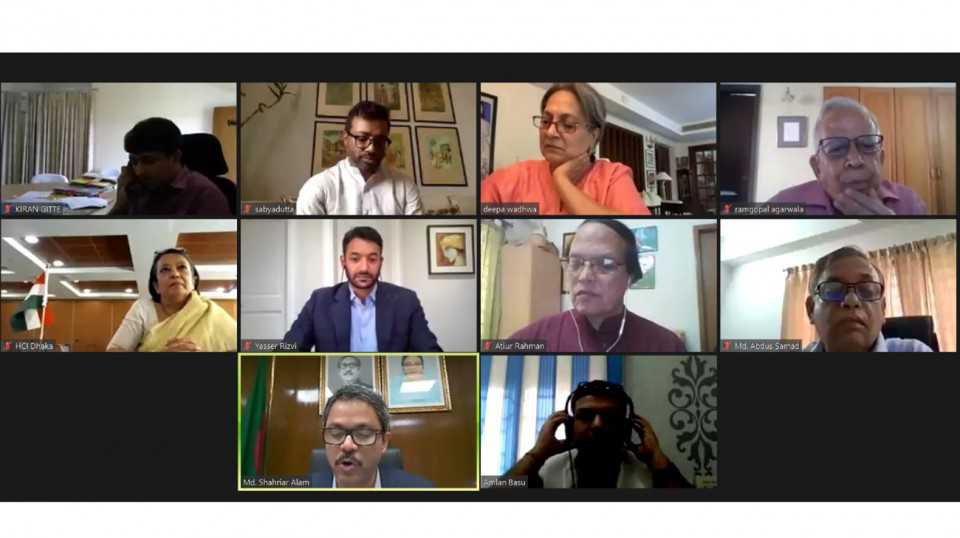Bangladesh-India inland waterways can become vital, cost-effective connectivity: experts

Image collected
Inland waterways development between Bangladesh and India can become a vital and cost effective way of multimodal connectivity that can improve economic wellbeing of people from both countries, policymakers and experts have said.
Well-developed waterways, as part of a larger multimodal connectivity setup, can ensure good water resource management, which is also a prerequisite for agricultural growth, they said at the inaugural webinar of Asian Confluence NADI conversations organised by Asian Confluence, a premier Indian think tank based in Shillong on Wednesday.
"When we talk of the 54 transboundary rivers of Bangladesh and India, we talk of an opulent harvest of fusing culture, crafts and trade developed over generations," said State Minister for Foreign Affairs M Shahriar Alam.
"Rivers are part of our common heritage which we must cherish for our own nourishment," he said, stressing on the importance of water security and the livelihood of the communities living along the rivers as the two countries talk of improved water resources management and inland waterways.
Indian High Commissioner to Bangladesh Riva Ganguly Das said the agreement on the use of Mongla and Chattogram ports and the recent second addendum in the India-Bangladesh protocol route will rejuvenate livelihood and economy in the region.
These arrangements will further strengthen the integration of supply chains and logistics sectors, generate employment and spur investments in the logistics and services sector of Bangladesh such as finance, transport and insurance, she said.
Furthermore, Bangladesh will earn revenue as the cargo transit will be through the use of Bangladeshi trucks and through administrative and port fees, Riva Ganguly Das also said, adding that Narayanganj, Sirajganj, Mongla, Chilmari and Khulna will thereby emerge as new economic hubs in Bangladesh when the multimodal connectivity projects are implemented in full.
Ram Gopal Agarwal, distinguished fellow at the NITI Aayog; Abdus Sammad, former senior shipping secretary of Bangladesh; and Dr Atiur Rahman, former governor of Bangladesh Bank, agreed that the north-eastern states of India and Bangladesh can benefit immensely from multimodal connectivity.
There is immense possibility for growth in the agriculture sector, they opined at the session chaired by Deepa Gopalan Wadhwa, an Indian international relations expert.
Yasser Rizvi of Summit Group said that the new Daudkandi-Sonamura route has good potential and in order to maximise usage suitable transshipment points must be identified for handling of goods to and from the smaller barges.
More than two hundred people comprising of scientific institutions such as IUCN, civil society, think tanks and academia attended the session.
Source: https://www.thedailystar.net
Tags :
Previous Story
- Bangladesh Railway operates special parcel train for agricultural...
- Bangladesh can export vegetables, fish to Nepal: PM...
- Radisson would go to Khulna, Bangladesh’s third largest...
- In the event that blockage finishes in streets,...
- Labour rights must for enabling business environment
- Premier Cement takes up Tk 1,300cr expansion despite...
- Ship sets off to check viability
- GPH Ispat to dispatch new manufacturing plant by...